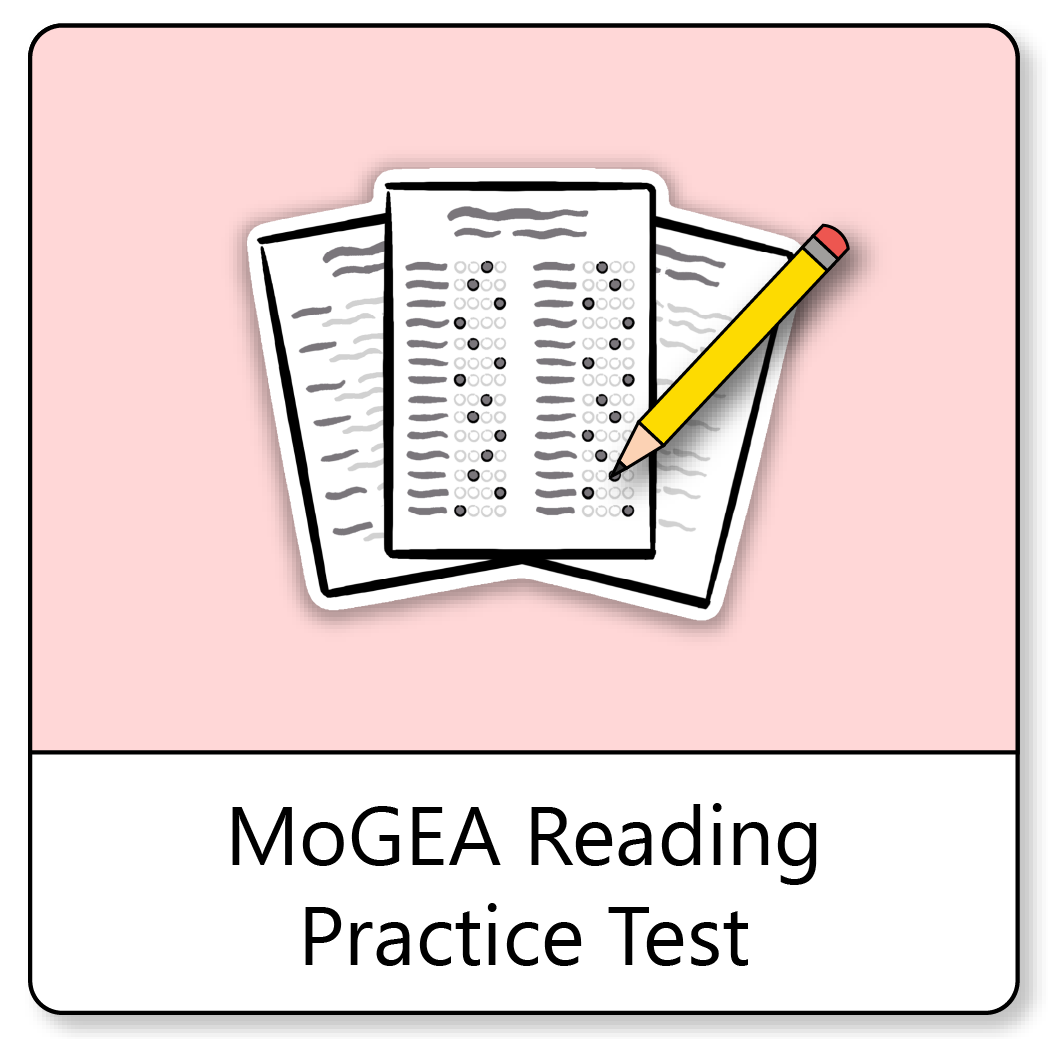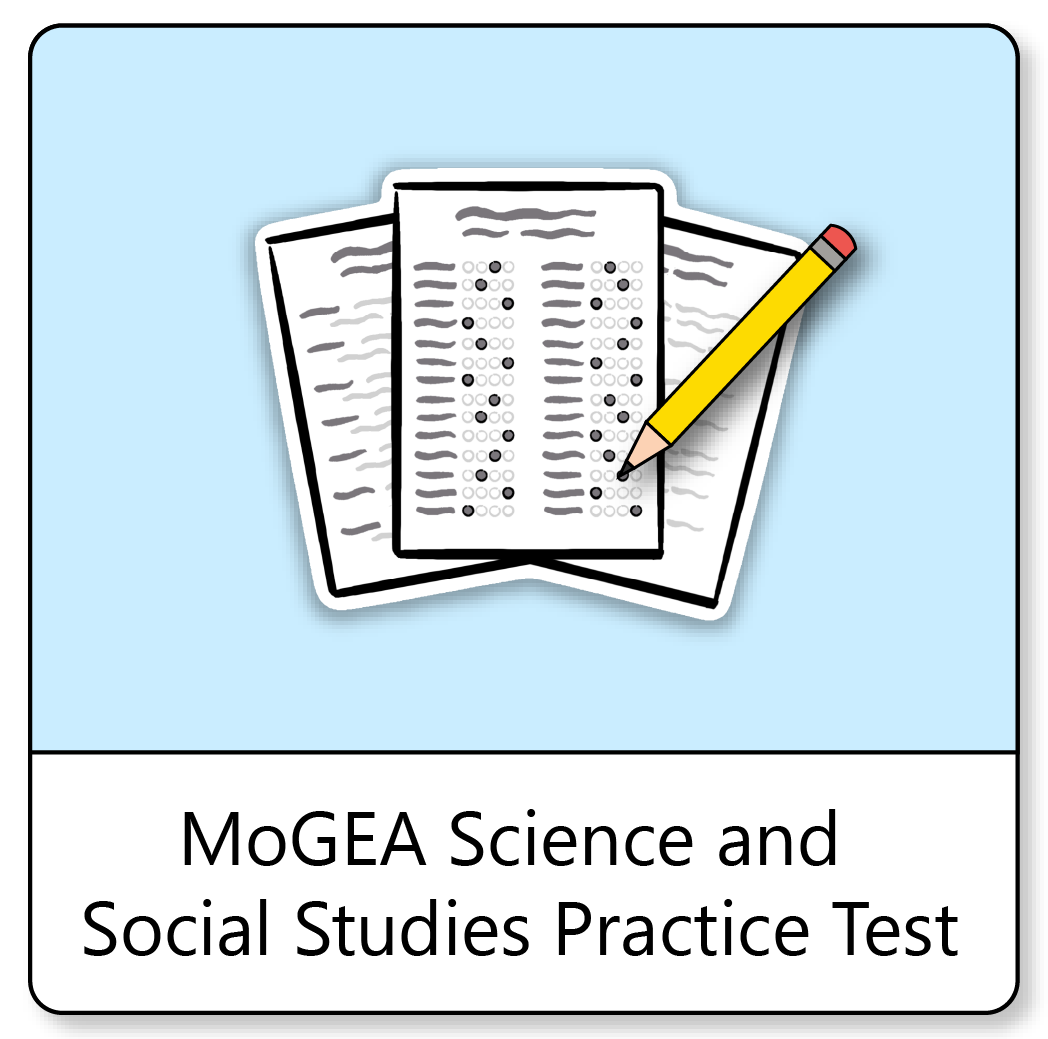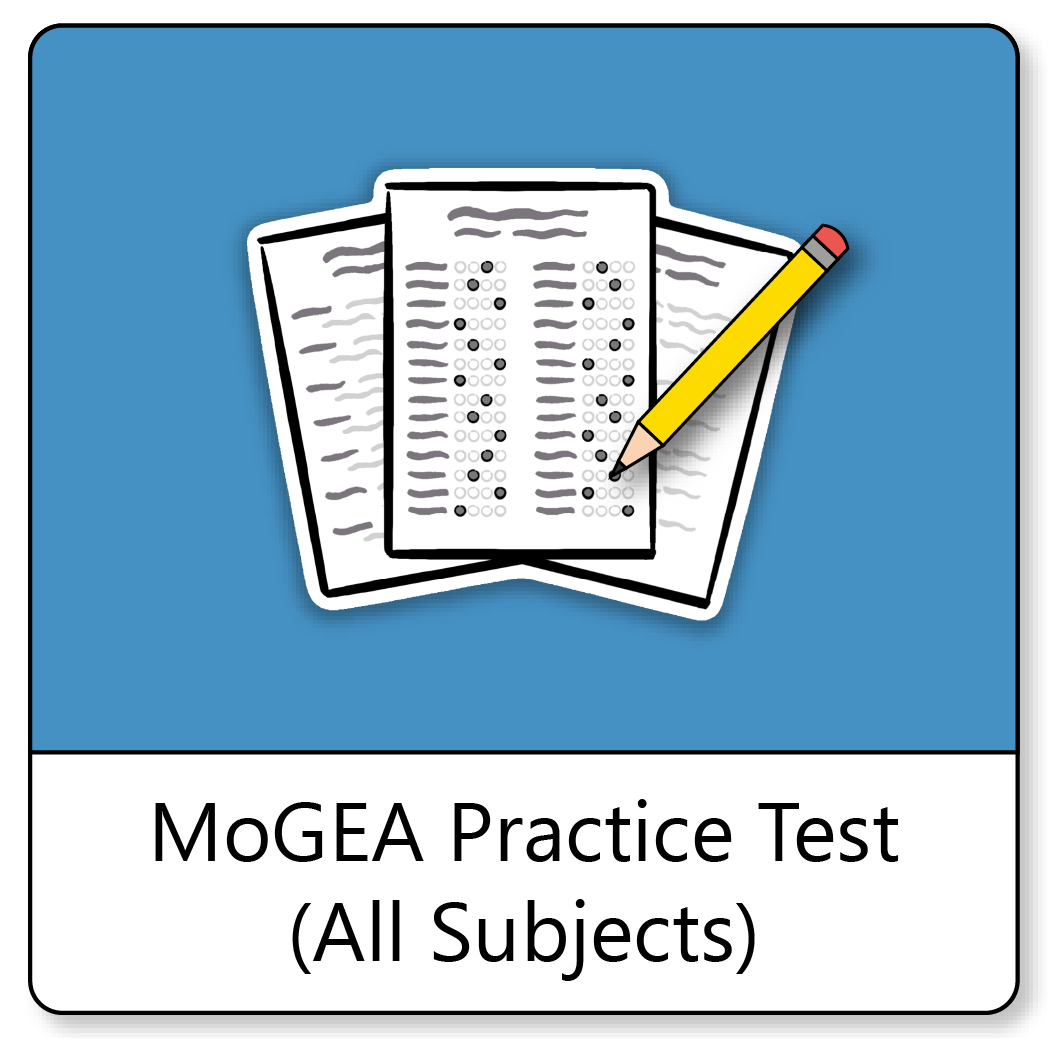If you need help studying for the MoGEA Mathematics test or just want some more information about what the test is like, you’ve come to the right place!
Click below to take a free MoGEA Mathematics practice test.
What’s On the MoGEA Mathematics Test?
There are 40 questions on the Mathematics test, grouped into three main areas:
- Numbers and Algebra (50%)
- Measurement and Geometry (25%)
- Statistics and Data Analysis (25%)
Other MoGEA Practice Tests
Subject-Specific Practice Tests
If you need some extra practice in a another area of the MoGEA test, click one of the subjects below to get started!
Full Practice Test
If you’d like to test your full range of knowledge, click below to take a full MoGEA practice test that includes every subject:



 MoGEA Study Guide
MoGEA Study Guide MoGEA Flashcards
MoGEA Flashcards

